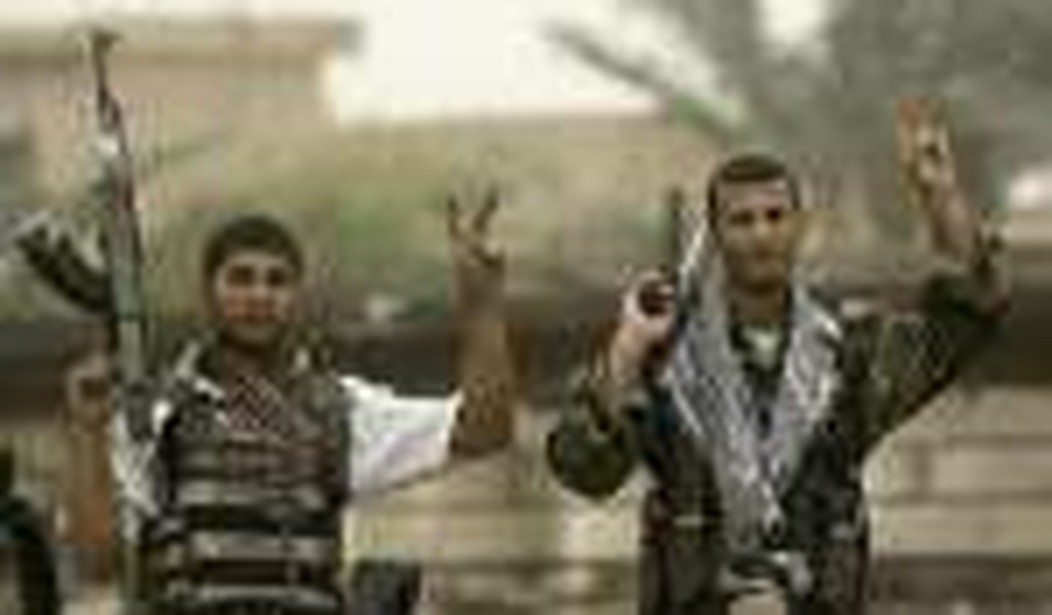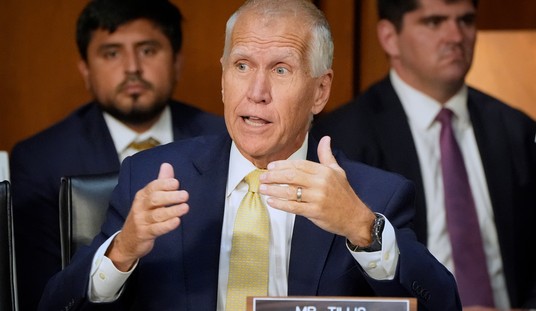One of the most notable things about the fierce and bloody confrontation taking place the government and Sadr’s militia is the spin on the operation by the commanders and the government; that it is a crackdown on outlaws with emphasis that the operation targets no particular movement or political line.
This generic label, includes the so-called rogue Sadrists. Sadr announced only weeks ago that whoever doesn’t uphold the ceasefire would no longer be considered a member of the movement.
Now, Sadr is watching those rogue elements being hit hard by the government forces. Instead of disavowing those who blatantly disobeyed his ceasefire orders we see him call for negotiations and condemning the government, thus once more revealing his real face as a defender of his own version of terrorism.
Another important dimension in this confrontation, largely ignored, regards Sadr’s rhetoric about security situation in Basra. The anti-Multinational Force powers always blamed British troops for insecurity in the province prior to their withdrawal.
Now it must be asked in a loud clear voice – who’s responsible for insecurity now that British troops are gone?
Another important aspect of this operation is the excessive enthusiasm of the UIA-led government in striking the Sadrists, who are supposed to be part of the UIA and are also Shiites.
This is the first sign of the rising election fever in the south. Word on the street is that Sadrists want to hijack the provincial elections. Everybody knows that their criminal methods can severely reduce the chances for holding fair elections and may grant Sadr’s people huge gains at the expense of other Shiite factions such as the SIIC, Da’wa and Fadheela. The stakes are high for the SIIC in particular whose federal dream in the south, which Sadr is opposed to, hinges on the results of provincial elections.
If Sadr is to be cut down to size before the provincial election law can be passed, presumably his rivals would be able to compete in a relatively more civil way.
The outcome of this operation in my opinion will not involve the extermination of Sadr’s militia but rather the reduction of its power.
A truce would then be put in place with mediation by senior clerics, tribal leaders and third-party politicians.
But this would be a mistake – similar to former interim prime minister Allawi’s when he didn’t finish the job back in Najaf four years ago, except that the situation is more complicated this time as both belligerents are from the UIA.
Why? Because leaders like Saddam, Nasrallah and Sadr is always manage to turn defeat into symbolic victory for domestic consumption. If Sadr and a decent part of the movement’s command survive this round, he will portray his movement as an innocent victim of the “occupation and its agents” and will use this for an even louder propaganda campaign after the battle.
Those killed in the fighting are poor unfortunate followers, but the real outlaws, the heads of the movement, will likely escape punishment.
Just like Desert Storm or the summer 2006 Lebanon war, the survival of the leader can easily become synonymous to victory in their twisted dictionary.
And let’s not forget Iran. Its role in this chapter of the struggle for power in the south is still unclear to observers. Both sides of the conflict are friends of Iran, yet I think Iran will support the SIIC and prime minister Maliki this time.
It appears, for now, that Iran has begun to abandon this undisciplined movement. Iran has learned over time that Sadr’s militia, although powerful in some regions, is reckless and unpredictable – unlike the rest of the UIA which is consistent and organized in utilizing the power granted to them as the biggest party in the government to their advantage.
It is true that the grand strategies of Tehran and Sadr are quite the same when it comes to their ambitions in spreading their version of totalitarian Shia Islamism in the region. However, Sadr’s ambitious aspirations are not in harmony with Tehran’s tactical plans. He rejects a federal system in Iraq because he wants to control the whole country, while Iran at this stage is only looking forward to having an ally in a stable Iraqi south.
This is why supporting the SIIC makes more sense for Iran as the most reliable party that may be able to make the autonomous region in the south a reality—a reality in which Iran has a strategic interest, as it can turn the south into a friendly buffer zone instead of a thorn in its side.
Mohammed Fadhil is Baghdad editor for Pajamas Media. His blog is Iraq The Model.









Join the conversation as a VIP Member